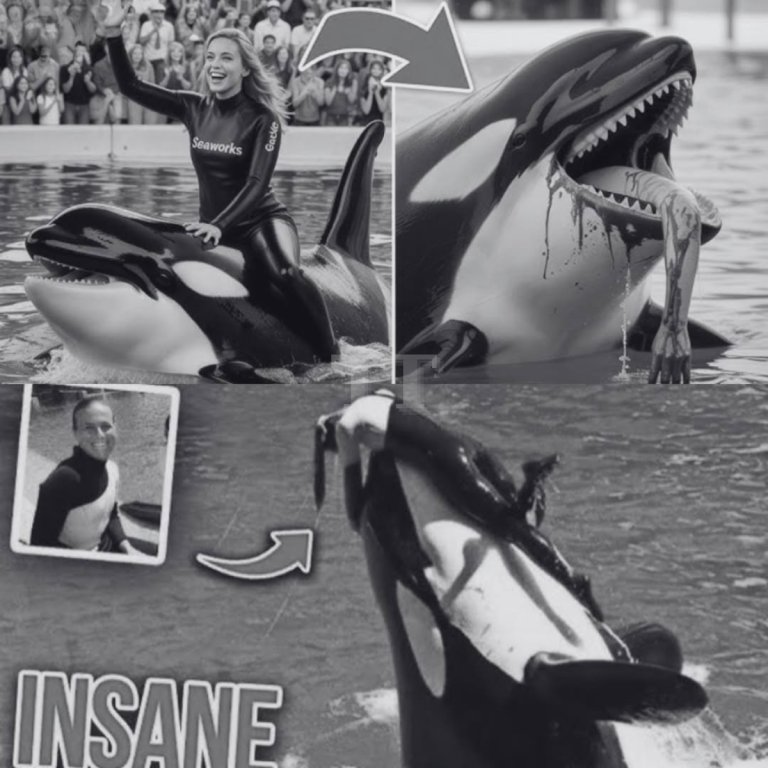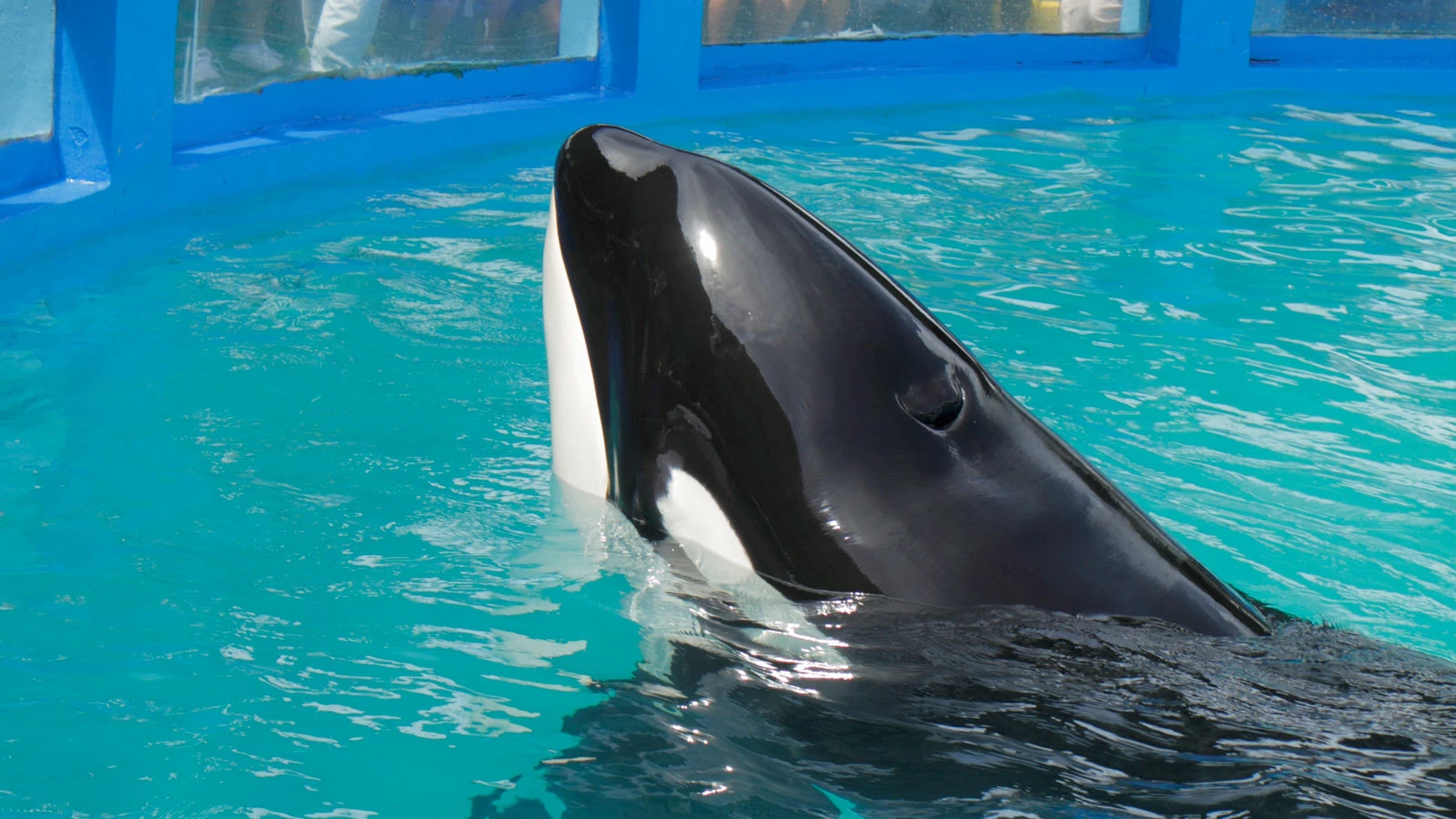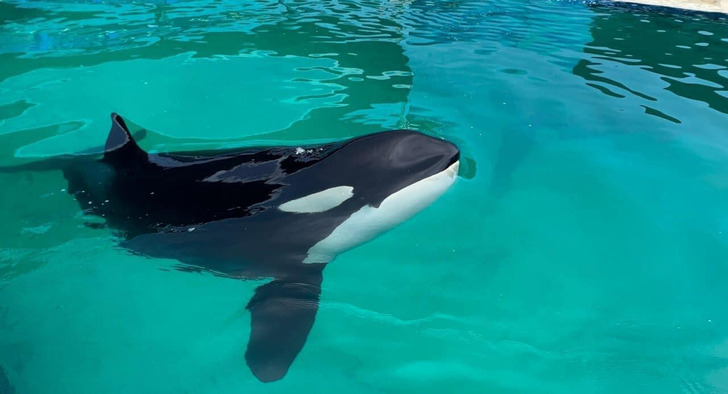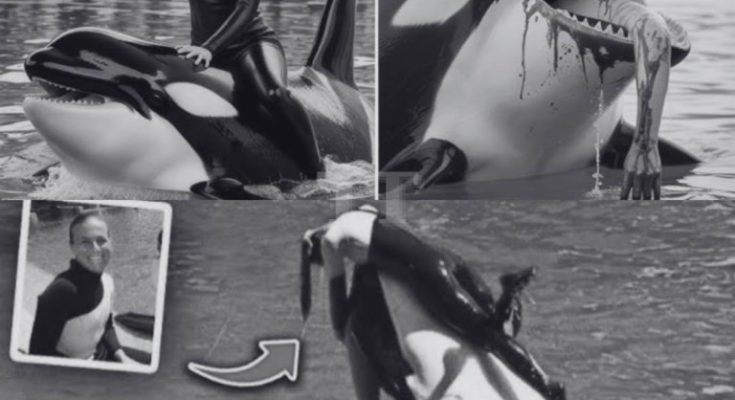
Tragedy at Pacific Blue Ocean Park: The Final Moments of Jessica Radcliffe
The sun glittered off the turquoise waters of the performance pool at Pacific Blue Ocean Park in San Diego, California, on July 31, 2025, as Jessica Radcliffe, a seasoned orca trainer with over 15 years of experience, stepped onto the platform. The 38-year-old beamed, her signature wave eliciting cheers from a packed arena of families, tourists, and marine life enthusiasts. Children pressed against the glass, their faces alight with anticipation for the midday show featuring Kalia, a 21-year-old killer whale known for her playful demeanor. The energy was electric, the crowd buzzing with excitement. But in a heartbeat, that joy turned to horror. A viral clip, now circulating across social media platforms like wildfire, captured the unthinkable: Kalia’s sudden, violent shift in behavior, transforming a routine performance into a tragedy that left the audience frozen in breathless terror. There were no screams, no warning—only the chilling sound of water thrashing and the weight of a moment that would haunt all who witnessed it.

Jessica Radcliffe was no stranger to the risks of her profession. A marine biologist by training, she had dedicated her career to studying and showcasing the intelligence of orcas, advocating for their welfare while captivating audiences with their acrobatic displays. Colleagues described her as meticulous, with an uncanny ability to read the animals’ moods. On this day, the show began as flawlessly as ever. Jessica, in her sleek black wetsuit, guided Kalia through a series of spins and leaps, her voice steady over the microphone as she narrated the orca’s strength and grace. The crowd roared as Kalia propelled herself skyward, her 6,000-pound frame glistening before crashing back into the pool, sending waves over the barriers. Jessica’s smile never wavered, her connection with Kalia seemingly unbreakable. Then, in a split second, everything changed.
The viral footage, shaky but vivid, shows the moment it happened. Jessica had just signaled Kalia for a routine slide-out onto the platform, a move they had performed countless times. But as Kalia surged forward, her movements grew erratic. Instead of sliding gently, she lunged with startling force, her massive tail thrashing violently. Jessica, caught off guard, stumbled backward, her arms flailing for balance. The crowd’s cheers turned to gasps as Kalia’s jaws snapped shut inches from Jessica’s legs. Before anyone could react, the orca’s powerful tail struck, sending Jessica into the water. The arena fell silent, the only sound the relentless churning of water as Kalia dove after her. Spectators froze, some covering their children’s eyes, others clutching their phones, capturing the chaos. Trainers on the sidelines scrambled, shouting commands, but it was too late. Jessica did not resurface.
The aftermath was pandemonium. Park staff ushered the stunned audience out as emergency responders flooded the scene. Pacific Blue Ocean Park issued a statement within hours, calling the incident a “tragic accident” and suspending all orca shows indefinitely. Kalia was isolated in a holding tank, her fate uncertain. Animal rights groups, long critical of keeping orcas in captivity, seized the moment, with PETA posting on X: “Jessica Radcliffe’s death is a wake-up call. Orcas are not performers—they’re wild animals.” The hashtag #JusticeForJessica trended alongside #FreeKalia, reflecting a divided public: some mourned the loss of a beloved trainer, others decried the ethics of marine parks. By evening, the clip had amassed millions of views, fueling debates on platforms from TikTok to Reddit.
Jessica’s story, however, was more than a headline. Born in Monterey, California, she had grown up fascinated by the ocean, earning a degree in marine biology from UC Santa Barbara. Her colleagues at Pacific Blue Ocean Park called her a “force of nature,” someone who bridged science and spectacle with her passion for education. She had trained Kalia since the orca’s birth in 2004, forming a bond that seemed to defy the inherent dangers of working with a 12-foot apex predator. Yet, experts noted that orcas in captivity often exhibit stress-related behaviors, with incidents like the 2010 death of trainer Dawn Brancheau at SeaWorld serving as grim reminders. A 2023 study cited by the Humane Society found that captive orcas live significantly shorter lives than their wild counterparts, often developing psychological distress.

The tragedy has reignited calls to end orca captivity, with California’s 2016 Orca Protection Act already banning breeding programs and new shows. Pacific Blue Ocean Park, one of the last facilities to maintain live performances, now faces intense scrutiny. Insiders report that executives are in crisis mode, grappling with lawsuits, plummeting ticket sales, and questions about Kalia’s future. Meanwhile, Jessica’s family, still processing their loss, released a brief statement: “Jessica loved her work and the animals she cared for. We ask for privacy as we grieve.”
As the viral clip continues to circulate, it serves as both a memorial to Jessica Radcliffe’s life and a stark warning of the unpredictable power of nature. The sound of that water, thrashing in the silence, lingers in the minds of those who saw it—a haunting echo of a moment when joy turned to terror, and a vibrant life was lost.



